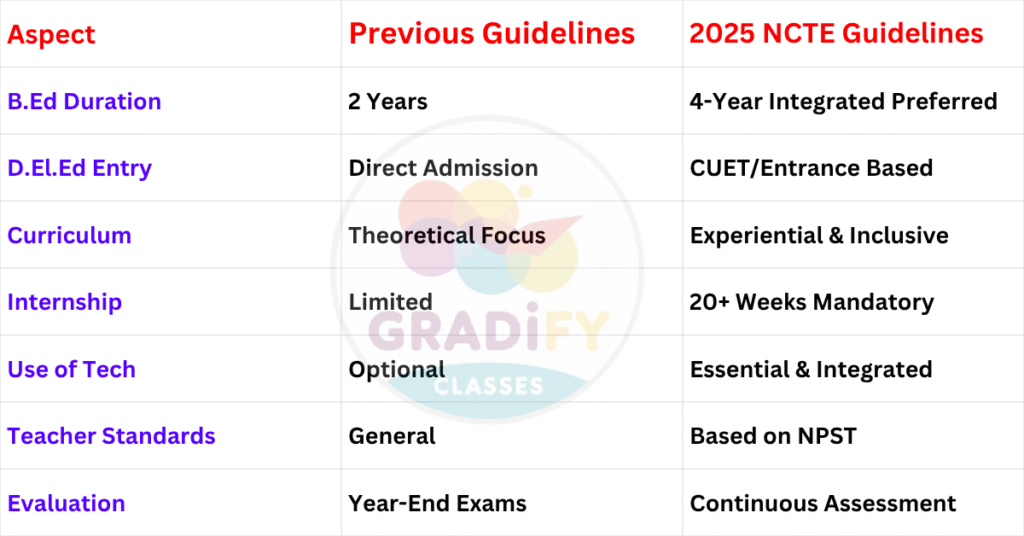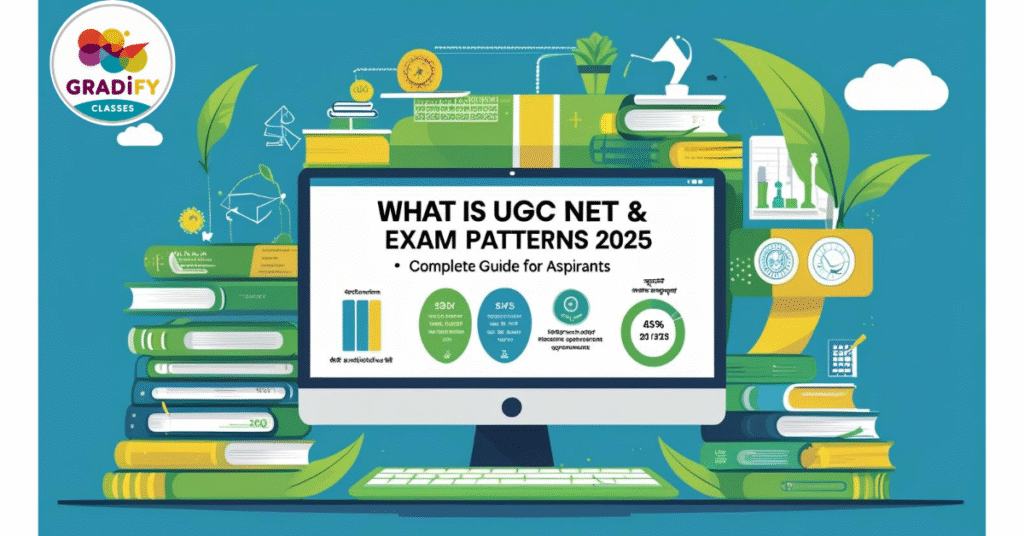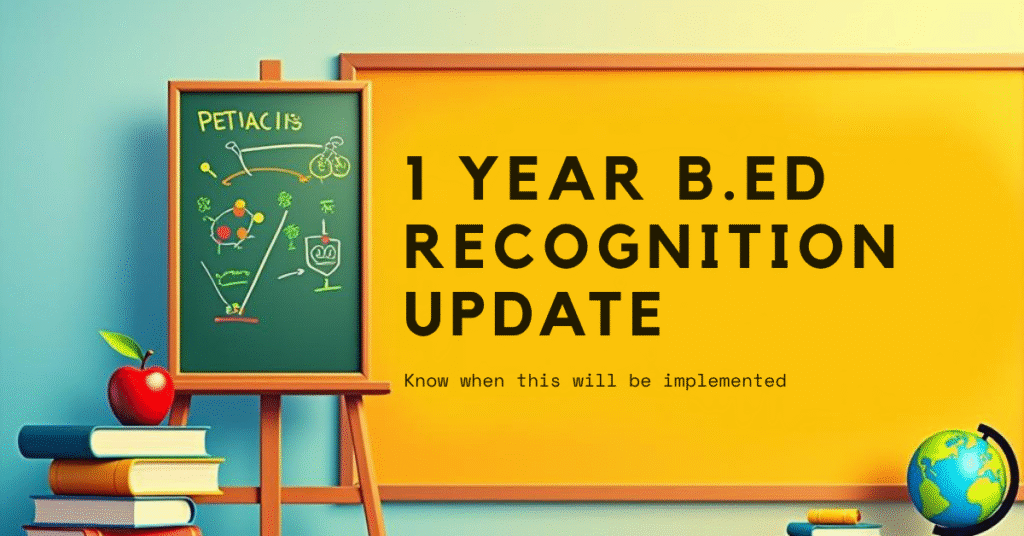- The National Council for Teacher Education (NCTE) has released its much-anticipated 2025 NCTE NEW guidelines for B.Ed (Bachelor of Education) and D.El.Ed (Diploma in Elementary Education). These new regulations aim to improve the quality of teacher education in India and align it with the National Education Policy (NEP) 2020. The 2025 NCTE guidelines emphasize integration, innovation, and inclusivity in the teacher preparation process.
- In this blog, we will explore the key changes introduced in the 2025 NCTE guidelines, their implications for students and teacher training institutions.
🏛 What is NCTE?
The National Council for Teacher Education (NCTE) is a statutory body established under the NCTE Act, 1993. It is responsible for the planning, coordination, and regulation of teacher education in India. NCTE ensures that teacher training programs maintain the required academic and professional standards.
🎯 Objectives of the 2025 NCTE Guidelines
The 2025 guidelines have been framed to:
-
Implement the vision of NEP 2020.
-
Enhance the practical and professional competence of future teachers.
-
Promote multidisciplinary and integrated teacher education.
-
Encourage the use of technology and experiential learning.
-
Improve the quality and accountability of teacher education institutions (TEIs).
📌 Major Changes in 2025 NCTE Guidelines for B.Ed
1. Integrated Teacher Education Programme (ITEP) Emphasis
-
From 2025 onwards, 4-year ITEP will become the preferred route for teacher education.
-
It combines a Bachelor’s degree with B.Ed (e.g., B.A.-B.Ed, B.Sc.-B.Ed, or B.Com.-B.Ed).
-
Traditional 2-year B.Ed programs may be phased out gradually.
2. Admission Through CUET
-
Admission to B.Ed and ITEP will be conducted through the Common University Entrance Test (CUET).
-
This ensures uniformity and transparency in the selection process.
3. Enhanced Curriculum
-
Focus on foundational literacy and numeracy (FLN), inclusive education, multilingualism, and digital pedagogy.
-
Emphasis on internship and practical training (minimum 20 weeks of school-based internship).
4. Use of ICT and Online Resources
-
Integration of technology-enabled learning like LMS (Learning Management Systems), virtual classrooms, and AI tools in teacher education.
5. National Professional Standards for Teachers (NPST)
-
B.Ed programs must align with NPST for standardizing teacher performance and career growth.
Highlights of 2025 Guidelines for D.El.Ed
1. Minimum Eligibility and CUET-Based Admission
-
Minimum qualification remains Class 12 (any stream) with at least 50% marks.
-
Admission to D.El.Ed programs will also be through CUET or State-level entrance exams.
2. Curriculum Aligned with ECCE & NEP
-
Emphasis on Early Childhood Care and Education (ECCE) and foundational education from age 3+.
-
Subjects include child psychology, classroom management, play-based learning, and inclusive education.
3. Internship and School Experience
-
20-24 weeks of school internship with hands-on classroom experience.
-
Continuous assessment instead of final exams only.
4. Skill-Based and Reflective Teaching
-
Focus on experiential learning, reflective journaling, and community participation.
5. Mandatory Accreditation
-
All D.El.Ed colleges must be accredited by NAAC and follow digital governance norms.
Impact on Teacher Education Institutions (TEIs)
-
Curriculum Overhaul: TEIs must redesign their syllabus to include NEP-aligned modules.
-
Faculty Training: Mandatory capacity-building programs for faculty.
-
Infrastructure Requirements: Enhanced use of ICT labs, smart classrooms, and digital libraries.
-
NAAC & NCTE Norms: Institutions must meet quality benchmarks set by NAAC and NCTE for recognition.

Implementation Timeline
-
Academic Year: The new guidelines will take effect from the 2025-26 academic year.
-
Transition Period: A grace period of 2-3 years is provided to TEIs for full implementation.
-
Phasing Out Old Models: The traditional 2-year B.Ed may be discontinued by 2028, depending on state readiness.
👩🏫 Who Will Benefit from These Changes?
-
Aspiring Teachers: Better preparation, practical exposure, and career readiness.
-
Schools: Trained teachers with multidisciplinary and tech-based pedagogy.
-
Institutions: Improved quality ratings through standardization and innovation.
-
Students: Benefit from more competent, inclusive, and updated teaching methods.
📚 FAQs
Q1. Is B.Ed still a 2-year course?
Ans: The 2-year B.Ed is gradually being phased out. The 4-year Integrated Teacher Education Programme (ITEP) is being promoted as the new standard.
Q2. What is the minimum qualification for D.El.Ed in 2025?
Ans: Candidates must have passed Class 12 with 50% marks to be eligible for D.El.Ed, along with CUET or state entrance qualification.
Q3. Are these guidelines applicable from 2025 itself?
Ans: Yes, the academic session 2025–26 will implement these new guidelines. However, a transition phase is allowed.
Q4. Is CUET compulsory for B.Ed and D.El.Ed?
Ans: Yes, CUET is made compulsory for central universities and most states will follow suit for both B.Ed and D.El.Ed admissions.
Q5. Can private institutions offer ITEP?
Ans: Yes, but only after approval by NCTE and accreditation by NAAC.
Conclusion
The 2025 NCTE New Guidelines for B.Ed & D.El.Ed mark a transformative step in teacher education in India. With a strong emphasis on integration, practical learning, technology use, and teacher accountability, the guidelines aim to prepare a new generation of skilled and reflective educators. Whether you’re a student, parent, or an educational institution, it’s crucial to stay updated and adapt to these forward-looking reforms.


